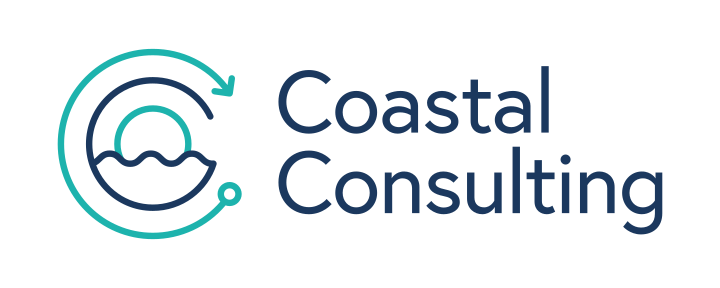Share this
Does HubSpot Integrate with Salesforce?
by Lauren Ryan on December 2024
If you’re reading this, you’re a Salesforce user who’s found themselves looking for a better tool. A better… marketing tool, sales enablement tool, or maybe attribution reporting tool. And you’re not alone. While you could integrate many tools with Salesforce to achieve bits and pieces of the functionality you’re looking for - you know that HubSpot is the strongest option for integrating with Salesforce and filling the gaps you’ve discovered in your organization. If you relate so far, keep reading and learn how HubSpot does, in fact, integrate with Salesforce.
How Does HubSpot Integrate with Salesforce?
HubSpot integrates with Salesforce via a native integration on the HubSpot App Marketplace. HubSpot created and maintains the integration with Salesforce. The native integration connects HubSpot to Salesforce via an integration user. Once the integration user logs into Salesforce from HubSpot as part of the integration installation process, HubSpot will use that connected profile to read, add, and update information in Salesforce.
How Often Does HubSpot Sync with Salesforce?
This native HubSpot Salesforce integration refreshes every 10-15 minutes and uses an API call for each connection with Salesforce. In addition to the 10-15 minute refresh, certain updates trigger an automatic sync between HubSpot and Salesforce without delay. Updates via the native integration count towards the API limit in your Salesforce account.
Which Objects Sync Between HubSpot and Salesforce?
When the HubSpot Salesforce integration is installed, you can sync both native and custom objects between HubSpot and Salesforce. The HubSpot Contact object is included in the native integration by default and can't be excluded. The following standard objects are available to sync easily in the native integration:
HubSpot Deals <> Salesforce Opportunities
HubSpot Companies <> Salesforce Accounts
HubSpot Tickets <> Salesforce Cases
HubSpot Activities <> Salesforce Tasks
Additionally, up to 10 custom objects can sync from Salesforce to HubSpot. Remember that custom object records currently only sync from Salesforce to HubSpot. Meaning the custom object sync is not bi-directional.
Can You Transfer Data from HubSpot to Salesforce?
Once the HubSpot Salesforce integration is installed, data flows bi-directionally between HubSpot and Salesforce. The integration requires the HubSpot Contact object to integrate with the Salesforce Lead and Contact object. The other available standard objects (Deals, Companies, Tickets, Activities) can be added and removed from the integration easily.
How Do I Limit What Syncs from HubSpot to Salesforce?
Often, teams using the HubSpot Salesforce integration do not want all of the data in HubSpot to sync to Salesforce. They may want to wait until a Contact meets marketing qualified lead (MQL) criteria or takes a qualifying action to create the record in Salesforce. In that case, the HubSpot Administrator will use an Inclusion List to control when records sync from HubSpot to Salesforce.
How Do I Limit What Syncs from Salesforce to HubSpot?
The integration user permissions need to be updated to prevent data from syncing from Salesforce to HubSpot. Because HubSpot is connected to Salesforce via the integration user, HubSpot has the ability to see and do anything that the connected user can see and do in Salesforce. The integration user’s Profile, Permission Sets, and Role need to be adjusted in Salesforce using selective sync to prevent Salesforce data from entering HubSpot.
Learn How to Integrate HubSpot and Salesforce
Now that we know that HubSpot and Salesforce do integrate, it’s time to dive deeper into the nuances of the integration. First, dip your toe into the HubSpot Salesforce integration with free on-demand and live training sessions. Then, invest in the HubSpot Salesforce integration course and master the HubSpot Salesforce integration from installation to optimization.
Share this
- April 2025 (1)
- March 2025 (1)
- January 2025 (3)
- December 2024 (2)
- September 2024 (2)
- August 2024 (2)
- July 2024 (3)
- June 2024 (1)
- May 2024 (1)
- February 2024 (1)
- January 2024 (1)
- December 2023 (1)
- November 2023 (1)
- October 2023 (5)
- September 2023 (2)
- June 2023 (1)
- April 2023 (2)
- March 2023 (2)
- February 2023 (5)
- January 2023 (8)
- December 2022 (7)
- November 2022 (10)
- October 2022 (2)
- September 2022 (11)
- August 2022 (4)
- July 2022 (2)
- June 2022 (3)
- May 2022 (8)
- April 2022 (6)
- March 2022 (4)
- February 2022 (4)
- January 2022 (6)
- December 2021 (4)
- November 2021 (4)
- October 2021 (4)
- August 2021 (1)
- July 2021 (7)
- June 2021 (15)
- May 2021 (1)
- March 2021 (2)
